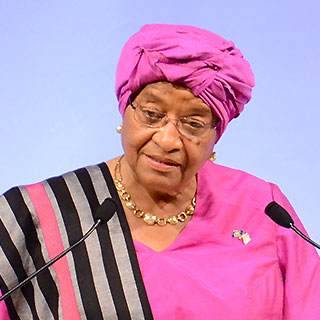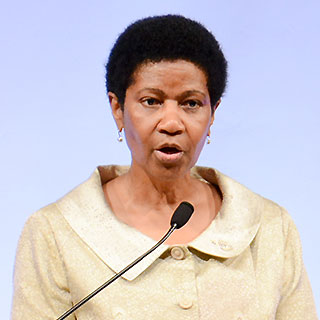Ellen Johnson Sirleaf
President, Republic of Liberia
Women have strength
One of the most inspirational woman to participate in WAW! Tokyo 2015 was H. E. Mrs. Ellen Johnson Sirleaf, President of the Republic of Liberia and Nobel Peace Prize Winner. She was without doubt the most historical figure, as Africa’s first democratically elected female head of state.
President Sirleaf is known for ascending to leadership roles in international politics as well as the Liberian government, and has overcome numerous setbacks and challenges along the way. Over the past eighteen months, she has faced an epic crisis with the Ebola virus outbreaks, and has led her nation to the eradication of the epidemic.
The WAW! symposium provided the president with the opportunity to provide her own unique insight as a decisive and influential leader. “I’m excited,” she said. “I feel like it’s a great moment of exhilaration for women, it’s a strong commitment on the part of the prime minister. Something good is happening in Japan as a result of the prime minister’s policy and in his effort to promote women.
President Sirleaf is a firm believer in the implementation of measures that can be tracked so that governments can be held accountable for their actions. “We need strong intervention like what’s happening in Japan by Prime Minister Abe,” she said. “One needs a strong political commitment and quotas to ensure the removal of the historical inequities against women that exist.”
The president pointed out the need to consistently “impose confidence in our women and girls at the household level,” as the ultimately leads to increased autonomy and self-esteem. “A woman with self-confidence is capable of managing herself, her family and her nation,” she said.
President Sirleaf also acknowledged that, although there are still numerous challenges facing women, initiatives like WAW! and Womenomics in Japan set the stage for a sustainable path forward.


